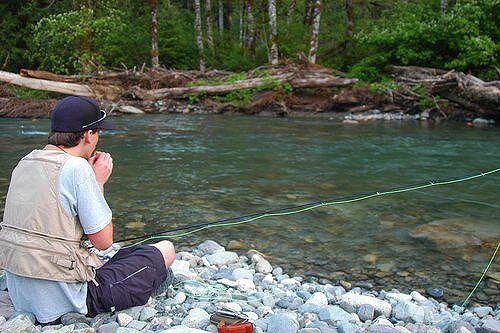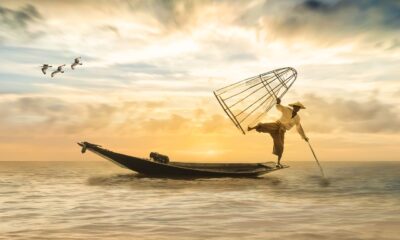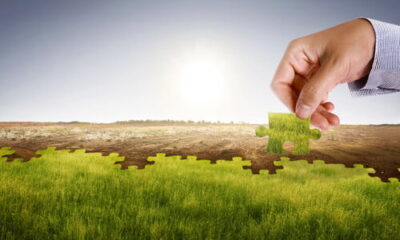

Environment
Taking the Green Approach to Fishing
Fishing as a sport or source of food isn’t as bad for the environment as some people assume. In fact, it can have a positive effect in terms of population control and small advances in evolution.
But some fishing tactics are clearly harmful to the ecosystem. When you take a fishing trip, it’s worth using the best tactics to protect the land and water systems around you. Here are some things you ought to do for a sustainable, as well as enjoyable, fishing trip.
Fish in the Right Places
Your state fish and game department cites certain rules for where people should fish for the good of the environment. Such regulations protect ecosystems that may bear threatened or endangered aquatic life.
In other situations, a longtime, popular “fishing hole” may now be off limits because the water is under-populated. Always make sure you fish in areas that are well populated.
Not only will this make it more likely that you’ll enjoy a memorable fishing experience, but that you help the environment by adjusting a potential over-population problem.
Follow Fish and Game Regulations
Fish and Game is an institution that’s designed to preserve the environment. As such, these departments purvey various rules and regulations that address the preservation of the land and water.
These rules will vary according to the state and the location of your desired fishing spot. They’re usually monitored by Fish and Game Wardens that enforce the law. Make sure you check the regulations before you go out fishing, in order to duck any compliance issues that could result in a heavy fine and possible jail time.
The most important rules are to avoid fishing in restricted areas and to observe catch and release. In most areas, if a fish is small, you must release it. There are also certain fish that it is illegal to take at certain times of the year. These must also be released if you catch one.
Use Row Boats Instead of Motor Boats
When you go fishing on a boat, leave the motor behind. Motorized boats release carbons into the air and pollute the water. They also entail noise pollution, which can disturb nesting birds and other creatures in the wild. Your responsibilities as a fisherman encompass engaging in your sport with the least amount of disturbance possible.
Clean Up After Yourself
This is a vital practice for every environmentally conscious individual. As you fish, small things will make a big difference.
Refuse such as plastic bags, rubber rings, drink cans, and other essential fishing tools should be used sparingly and should be hauled out when you leave the wilderness. Don’t leave these items behind, because animals can be caught on or try to consume them and get injured or killed.
Carry out all of your fishing line, hooks, and other gear as well. If a line gets hooked onto a tree branch, make the extra effort to retrieve it. Carry out anything you pack in to avoid animal mortalities and disturbances to the ecosystem.
Use Eco-Friendly Bait
Common forms of fishing bait include soft plastics and lead jigs that will attract fish. But if these lures get torn off the line, it’ll be impossible to find them again, and they can kill and injure other creatures in the ecosystem.
As a result, several states have banned the use of these baits. Eco-friendly bait is the future of sustainable fishing. States that have banned plastic lures have also mandated the use of live bait and other biodegradable bait options to protect the ecosystem from the harmful effects of artificial materials.
When you go fishing, it’s important to consider the environment you’re entering. Taking care of your equipment and playing by the rules are the most important things a fisherman can do to ensure the environment will be able to provide plentiful fish for a long time to come.


 Environment12 months ago
Environment12 months agoAre Polymer Banknotes: an Eco-Friendly Trend or a Groundswell?

 Features11 months ago
Features11 months agoEco-Friendly Cryptocurrencies: Sustainable Investment Choices

 Features12 months ago
Features12 months agoEco-Friendly Crypto Traders Must Find the Right Exchange

 Energy11 months ago
Energy11 months agoThe Growing Role of Solar Panels in Ireland’s Energy Future





























